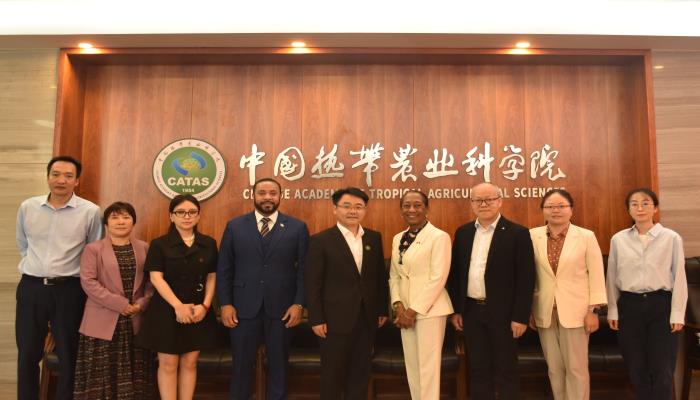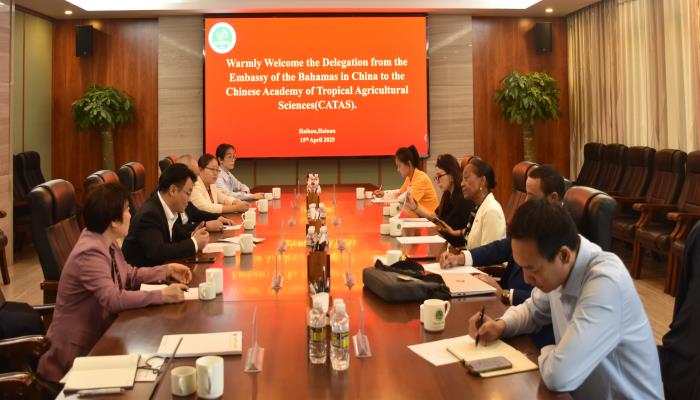On April 15, a delegation from the Embassy of the Bahamas in China visited the Chinese Academy of Tropical Agricultural Sciences (CATAS) for a meeting and field visit. Li Jihua, Vice President of CATAS, attended the symposium.
Fig. 1: Group Photo of Participants
Vice President Li Jihua extended a warm welcome to the delegation from the Embassy of the Bahamas in China. He highlighted CATAS’s position as a leading research institution in China’s tropical agricultural sector, possessing extensive experience and technological advantages in tropical crop cultivation, sustainable agricultural development, agricultural technology extension, and international cooperation. He stated that CATAS is willing to engage in in-depth exchanges with the Bahamas in areas of mutual interest such as tropical fruit and vegetable variety breeding, efficient cultivation, and preservation and processing technologies. He expressed the aim to jointly explore pathways for tropical agricultural development suited to the characteristics of island nations and to promote high-quality development in the tropical agriculture sector for both countries.
Fig. 2: Symposium and Exchanges
H.E. Paulette Bethel, Ambassador of the Bahamas to China, thanked Vice President Li Jihua for his welcome and highly commended of CATAS’s achievements in the field of tropical agriculture. She noted that the Bahamas possesses a unique tropical maritime climate and distinctive agricultural features. She expressed hope that advanced agricultural technologies from CATAS could be introduced in the future to enhance the level of agricultural modernization in the Bahamas.
The delegation also visited the Coconut Research Institute of CATAS and conducted in-depth exchanges on deep processing of coconuts and by-product utilization.
Attendees included Paul Clare Jr., Second Secretary of the Embassy of the Bahamas in China; Yang Wan, Embassy Staff Member; Wu Liang from the Foreign Affairs Office of Hainan Province; and relevant personnel from the International Cooperation Department, Biological Research Institute (Bio-Institute), and Tropical Crop Variety and Germplasm Resources Institute of CATAS.




